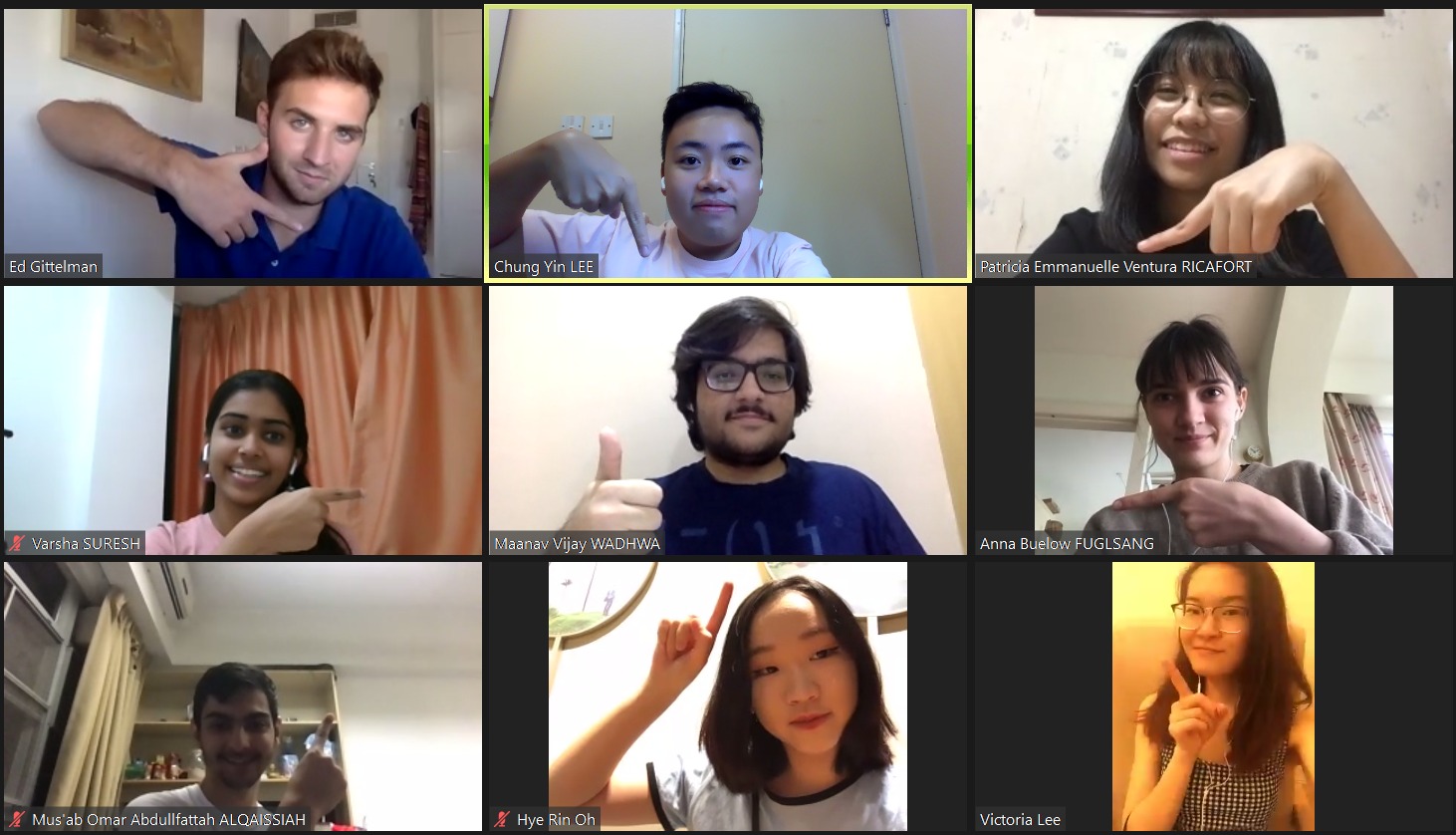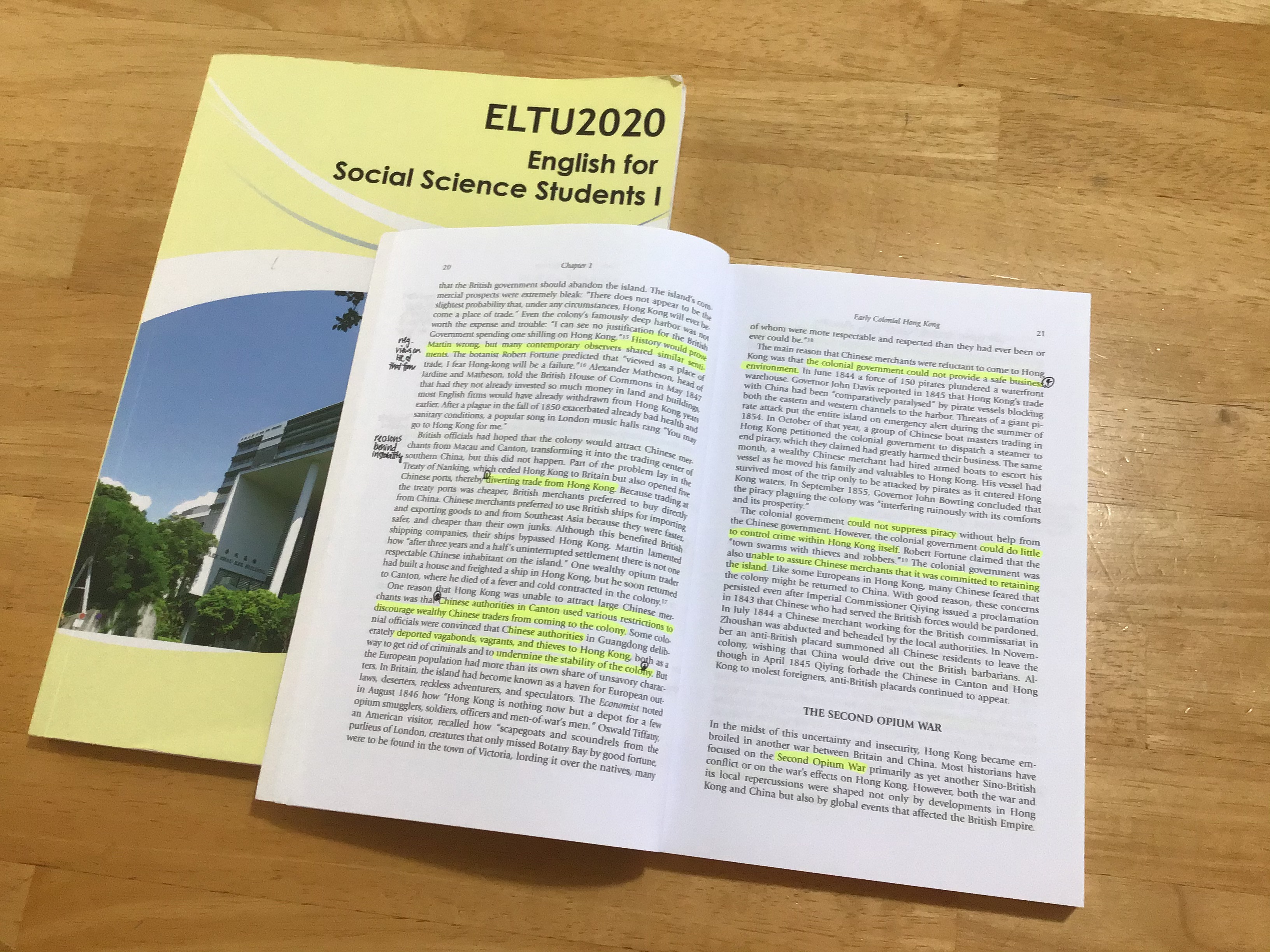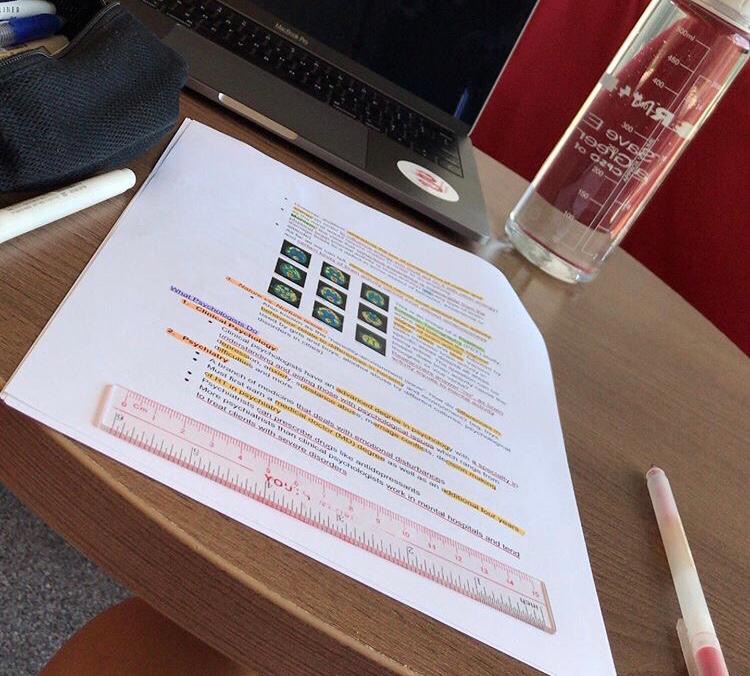THE MCSU’S GUIDE TO ACING YOUR EXAMS
2020年10月22日

Patricia Ricafort, Rae Oh, Lee Chung Yin & Maanav Vijay Wadhwa

The authors: Patricia Ricafort (Top right), Rae Oh (Bottom centre), Lee Chung Yin (Top centre), Maanav Vijay Wadhwa (Middle centre)
Midterms are upon us, and with online classes, they’ve now changed more than ever. If you’ve been feeling a bit lost this midterm season, the MCSU is here to help. Here are some insights on how to best prepare for exams:
USE EXTERNAL ONLINE RESOURCES
“In this time of virtual classes, it might be hard to keep up with what is being done in class. Getting doubts cleared might not be convenient over email. For me, utilising external online resources is quite helpful when preparing for exams. There are plenty of videos available online that explain concepts that you might find difficult. YouTube has a wide variety of content for all fields. For engineering specific content, there are various tutorials available on Udemy, Coursera, and Khan Academy.”
--Maanav Vijay Wadhwa, Year 2, Computer Science
DO THE EXERCISES
“Sometimes you have to get your hands dirty to get a feel for how the concepts interact. With practice comes speed and even perfection. Speaking from experience, this is particularly true for math and physics courses. Knowing the concepts well may not guarantee completing the tests in time. Doing the exercises from your lecturers/textbooks sharpens your competitive edge particularly for computationally heavy courses like ‘Linear Algebra I’ and ‘Advanced Calculus I’. Strangely enough, physical exercises help somewhat too by refreshing your mind.”
--Lee Chung Yin, Year 2, Enrichment Mathematics

DO THE READINGS AND READ THE TEXTBOOKS
“While lecture notes are concise summaries of the course material, they tend to omit details in exchange for brevity. Reading the textbook can provide a fuller picture. Speaking from experience, most lecture notes for math courses contain all the key theorems and definitions, but lack details of the proofs. The textbook usually contains entire proofs with explanation along with interesting examples. These help clear up misconceptions and you’ll have a much stronger grasp on the material.”
--Lee Chung Yin, Year 2, Enrichment Mathematics
“Communication courses rarely have textbooks, but lecturers will usually assign weekly readings for students. Some students merely skim through or skip the readings entirely, but I wouldn’t recommend this. The readings contain useful examples that lecturers did not have time to cover, but could help strengthen your elaboration in an exam. During my ‘Global Affairs and Public Issues’ course, the readings provided examples that I was able to integrate into my responses for extra marks.”
--Patricia Ricafort, Year 4, Global Communication

PERFECT YOUR PRESENTATION
“Understanding concepts tested in exams is important, but presenting it in a logical and organised manner is equally vital. Particularly in communication courses, nearly all exams require essay responses. Having well-structured arguments flanked by a thoughtful introduction and conclusion can improve your grade so much more than if you simply dump the information you memorised onto your answer sheet. I usually go through the Essay Structure guide from the Harvard College Writing Centre before an exam.”
--Patricia Ricafort, Year 4, Global Communication
PAY ATTENTION TO THE SYLLABUS
“At the beginning of every course, you’ll be seeing and hearing one word a lot: syllabus. Whether it’s one single sheet if you’re lucky (and several pages if you’re not), it’s your master key to unlocking an effective and efficient way of doing well in the class. Syllabi tell you how the course will be structured, what main topics are covered, which chapters to focus on and additional resources you can utilize. For both my ‘Psychology’ and ‘Global Change and Environmental Sustainability’ courses, I made sure to go through the syllabi first so that I could outline the parts of the textbook I needed to focus on and get ahead on the readings. This helped me tremendously when preparing for the exams, since I could direct my time towards absorbing useful information as opposed to extra reading material.”
--Rae Oh, Year 2, Global Studies
Even if you didn’t see your major discussed here, these tips will be helpful no matter what your field of study is. Regardless of your major or location, you can also take a look at the CUHK Library Search for papers or books that are useful. Add oil in your studies!
